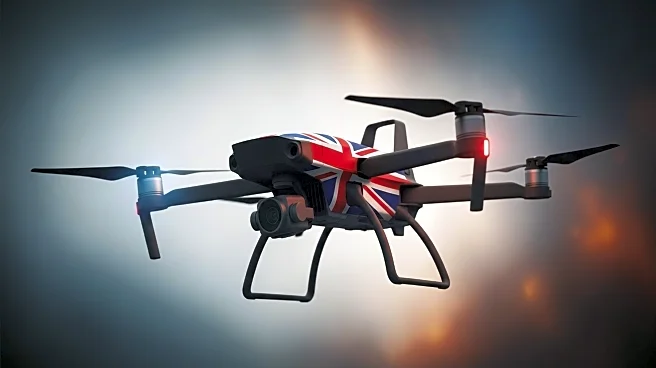What's Happening?
Ukrainian President Volodymyr Zelensky has reported that British microcomputers were found in Russian drones and missiles used in recent strikes on Ukraine. The strikes, which occurred on Sunday, resulted in the deaths of four family members, including a 15-year-old girl, in the village of Lapaivka. The attacks involved 549 missiles and drones, primarily targeting the western region of Lviv. Zelensky has called for more effective sanctions, noting that parts from allied countries such as Germany, Japan, and the US have been identified in Russian weaponry. The UK government has responded by emphasizing its efforts to prevent UK products from entering Russia's military supply chain, imposing severe sanctions on over £20 billion of trade with Russia.
Why It's Important?
The discovery of British components in Russian drones highlights the challenges in enforcing international sanctions and controlling the flow of military-grade technology. This situation underscores the complexity of global supply chains and the difficulty in ensuring that sanctioned goods do not reach prohibited destinations. The presence of foreign parts in Russian weaponry could lead to increased scrutiny and pressure on companies and governments to tighten export controls. The ongoing conflict in Ukraine and the involvement of international components in Russian military equipment may further strain diplomatic relations and impact global trade policies.
What's Next?
The UK government is likely to intensify its efforts to identify and shut down any loopholes that allow British products to be used in Russian military operations. This may involve stricter regulations and penalties for companies that violate export controls. Additionally, Ukraine and its allies may push for more comprehensive sanctions and international cooperation to prevent the circumvention of existing measures. The situation could lead to increased diplomatic tensions and calls for accountability from countries whose products are found in Russian weaponry.
Beyond the Headlines
The use of foreign components in Russian drones raises ethical questions about the responsibility of companies and countries in preventing their products from being used in conflicts. It also highlights the need for more transparent and accountable supply chains in the defense industry. The situation may prompt discussions on the effectiveness of current sanctions and the need for more robust international agreements to prevent the proliferation of military technology.










